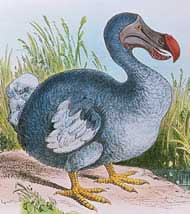
Deserts covered Central Asia as early as 22 million years ago
The great Asian deserts developed 22 million years ago at the latest, 14 million years earlier than had been thought. So concludes a new analysis of Chinese soils, filling in another piece of the puzzle of the Himalayas’ birth.
Today, huge deserts characterize the vast landmasses inside Asia, the largest continent on Earth. Here, cut off by the Himalayas from the humidity of the Indian Ocean and far from any othe
A robot submarine expedition under the Antarctic sea ice has discovered a major food reserve in the Southern Ocean. The findings, reported this week in SCIENCE, show a dense band of the shrimp-like krill under the ice, five times more concentrated than in open water. The importance of sea ice as a nursery for krill – key food for penguins, whales and fish – has long been suspected, but these are the first large scale measurements.
Scientists from the British Antarctic Survey, the Open Univer

Ancestors of the flightless figurehead of extinction island-hopped.
The flightless dodo’s ungainly shape hid an island-hopping past, say researchers. DNA from the extinct bird has revealed its place in the pigeon family tree, and suggests how it came to end up on its home, and graveyard, the island of Mauritius 1 .
The dodo’s strange appearance led to centuries of wrangling over its ancestry. “It’s the figurehead of extinction, yet little is known about its e

The eagerly awaited launch of ESA’s Envisat environmental monitoring satellite took place in Kourou, French Guiana, today at 22:07:59 hrs Kourou time (02:07:59 hrs CET). Envisat’s spectacular night-time launch also marked the return to business for Europe’s Ariane 5 launcher.
Lift-off was witnessed by dozens of cheering engineers, scientists and project members at the launch site and at ESA centres across Europe. Rising into a clear sky, the Ariane 5 propelled the Envisat towards a lofty v
Four years ago, torrential rains battered the Southern US, mudslides struck in Peru – and the inhabitants of Canada`s west coast saved up to 30% on their winter heating bills. The cause? El Niño, a huge temperature shift in the Pacific Ocean which spawns climate changes globally. Today, using satellite Earth observation data, scientists are detecting the early warning signs of a new El Niño event and predicting that it will develop over the next 3 to 6 months, bringing climate changes to countries th
The Scotia Sea, located between the Antarctic and the tip of South America, acts like a ‘blender’ on the very cold ocean waters that influence global ocean circulation patterns and ultimately climate, according to new research from the University of East Anglia (UEA) and published today (28 February) in the international journal Nature.
The research, carried out by Dr Karen Heywood, Dr David Stevens and Dr Alberto Naveira Garabato, shows that the dense, cold waters formed in the Weddell Sea